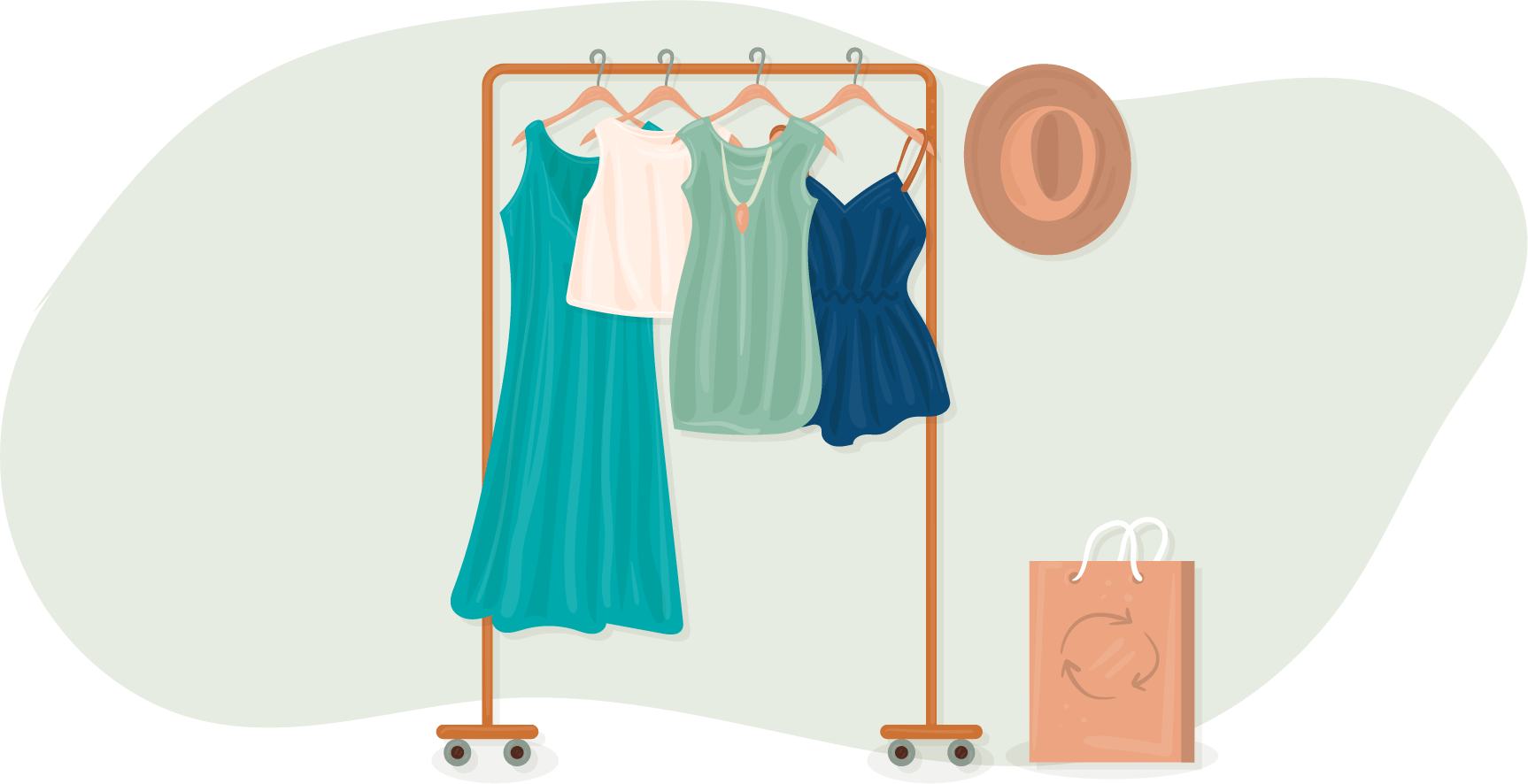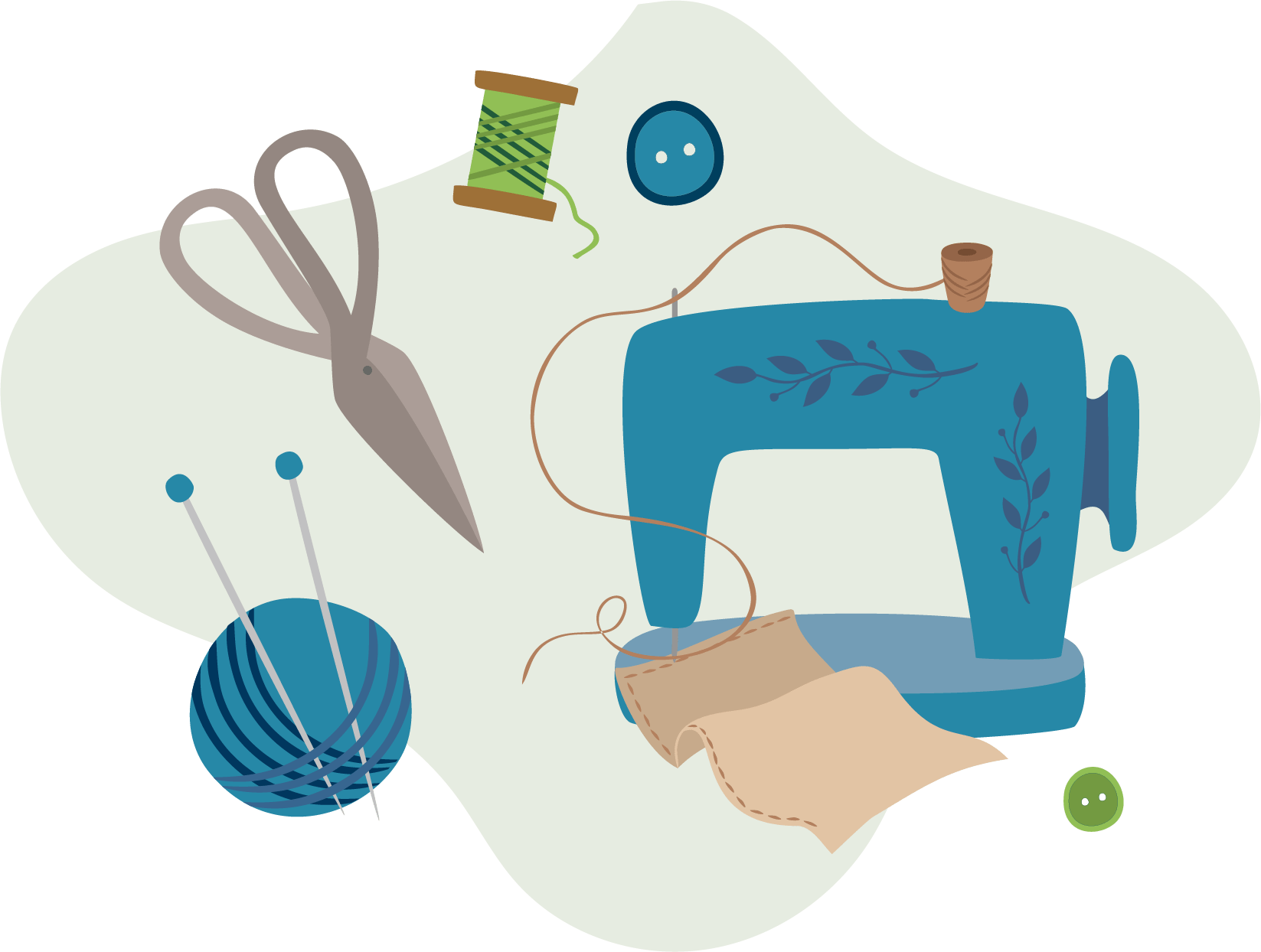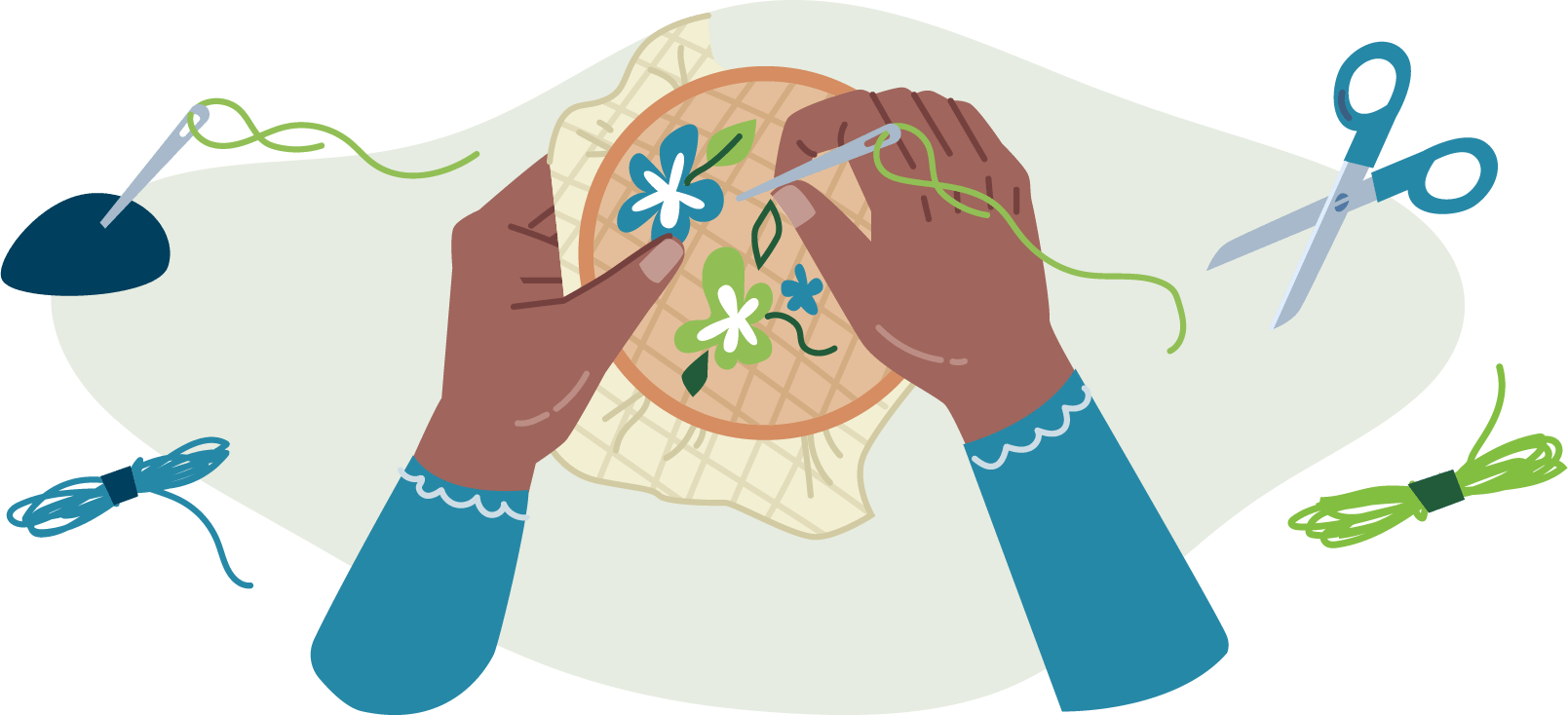Slow fashion
Slow fashion is an aspect of sustainable fashion, based on the repositioning of strategies of design, production, consumption, use and reuse. The Waste Minimisation Team is here to help you on your slow fashion journey – there are loads we can all do to make mindful, planet-friendly fashion choices.
Only buy things you really love
Some experts say we only wear 20 percent of our wardrobe! We all have our faves, but we don’t wear a whopping 80 percent of the clothes we’ve spent our hard-earned money on.
Did you know in Waipā, we send 4.3 tonnes of reusable textiles to landfill in just one week?
When you’re next eyeing up a new piece, think, “Do I absolutely love this? What could I pair it with from my current wardrobe? Could I borrow something like this from a friend instead or rent it?”. Or if you’re op-shopping, a helpful question is, “Am I only buying this because it’s ‘cheap’? Would I buy this if it were full price?”
If you only bring new items into your wardrobe that you absolutely love, you’ll make sure to wear them over and over again. On the fence? Put it back on the rack!
Keen to learn valuable, sustainable fashion tips? Nicola Turner from Mainstream Green shares her top advice directly from her wardrobe below.

A friend told me about ‘capsule wardrobes’, but I just can’t get my head around it. I love having lots to choose from!
You don’t need to commit to a capsule wardrobe (which is when your entire clothes collection can be mixed-and-matched together to cover a wide range of occasions and outfits), but we encourage you to consider all of the factors on this page before buying anything – whether it be new or second-hand. It makes more sense to the environment, your wallet and the limited space in your wardrobe to only own clothes that you wear all the time.

Buying sustainably
For some people, this means shopping second-hand and supporting the huge range of op shops we’re lucky to have in Waipā.
For others, it means only buying from accredited ethical brands that pay their workers a living wage and provide safe workplaces.
Other people purchase high-quality pieces that are durable enough to last years of wear, and consider how they will care for and repair the item in the future. Your approach might be a combo of some of these, or something else entirely!
Care for your clothes
When items get ripped or stained permanently, there are several different ways to deal with this.
Tackle easy jobs at home if you’ve got basic sewing skills or take it to one of our local experts for them to weave their magic (more details below).
One popular approach these days is visible mending – this is the art of making the fix a feature rather than trying to hide it. You can find out more about visible mending in our resource list below and remember: Youtube is your friend here. You can pick up endless sewing techniques, tips and tricks and upskill yourself at home for free.
To prolong your garments’ life, consider washing your clothes less and instead spot-cleaning and air-drying them when needed. Remember to check fabric care labels closely – you don’t want to shrink any gorgeous wool jerseys!

I heard about your Op Shop Bus Tours – when is the next one happening?
For the last couple of years, we have booked out a bus and travelled to another town to explore their op shops. On the way, we deliver education all about sustainable fashion, and make sure you have a helpful map before you set off to explore. It’s a wonderful day that is always highly reviewed! If you’d like to hear about any upcoming Waste Minimisation events, be sure to sign up to our regular newsletter.

Repairs and alterations
Show your garments the love they deserve and help them last the distance.
Cambridge
Te Awamutu
- Sew Easy, 194 Alexandra Street, Te Awamutu 3800
- Sincerity Dry Cleaners, 82 Benson Road, Te Awamutu 3800
Local sewing classes
Learn some basic sewing skills to boost your resourcefulness, or take it to the next level and explore the world of tailoring.
Tackle easy jobs at home if you’ve got basic sewing skills or take it to one of our local experts for them to weave their magic (more details below).
One popular approach these days is visible mending – this is the art of making the fix a feature rather than trying to hide it. You can find out more about visible mending in our resource list below and remember: Youtube is your friend here. You can pick up endless sewing techniques, tips and tricks and upskill yourself at home for free.
To prolong your garments’ life, consider washing your clothes less and instead spot-cleaning and air-drying them when needed. Remember to check fabric care labels closely – you don’t want to shrink any gorgeous wool jerseys!
Classes
A range of classes available, from dressmaking, patchwork, how to use your sewing machine, knitting, or for general sewing projects.
Knitting groups
There’s a bunch of craft and knitting groups in the Waipā too! These can be a great place to pick up new skills and meet other people who share your love of crafts.
Check out this page for a round-up of all the local options: fibretron.co.nz/knitting-groups
Online inspiration

Visible mending
This is all about embracing imperfection and turning a “fix” into a “feature”!
Here are some fantastic online resources to get you started:

The waste from clothes can’t be that bad, surely? I’ve been wearing the same work shirts for almost 10 years.
Textile waste is one of New Zealand’s fastest growing waste streams, and has the fourth highest impact on the environment and climate change (after food, housing and transport). Globally, the fashion industry is responsible for more than 40 million tonnes of textile waste a year.
Dress rentals
Need something for a special occasion? Don’t buy, rent!
Te Awamutu
Cambridge
Online
- All The Dresses is a compilation of many different dress rental services, all brought together in the one place.

Buy second-hand
Whether it’s trawling Trade Me, buying fashion influencers’ hand-me-downs on Instagram, or sourcing from websites like Designer Wardrobe, there are many ways you can scout out great pre-loved fashion deals.
Have you seen our local directory of op shops in the Waipā District? You can access our Collectors Anonymous guide online for free.
Ethical brand directories
Ethically Kate is a NZ ethical fashion author and influencer (check out her blog posts too for some great info and inspiration).
Fair & Good showcase brands that reduce poverty, inequality and exploitation.
Books in your Waipā District Library
We have tons of great books to support your slow fashion journey in our district libraries. Here are just a few:
- Make Thrift Mend
Author – Rodabaugh, Katrina - Mending Matters
Author – Rodabaugh, Katrina - Modern mending: Minimise waste and maximise style
Author – Lewis-Fitzgerald, Erin - The Art of Repair
Author – Martin, Molly - Mending with love – creative repairs for your favourite things
Author – Misumi, Noriko
- Mend it, wear it, love it!: Stitch your way to a sustainable wardrobe
Author – Edwards, Zoe - Joyful mending: Visible repairs for the perfectly imperfect things we love
Author – Misumi, Noriko - Practical sew & mend : essential mending know-how
Author – Gordon, Joan - Mend it better
Roach, Kristin M.
Collectors Anonymous
Collectors Anonymous has curated a guide book of over 30 vintage, retro, antique, pre-loved, industrial, mid-century, second-hand & charity stores all across Waipā.
Within the pages, you’ll find local businesses supporting the circular economy, saving goods from landfill and giving them a new life.
All these shops will have copies, so pop into your favourite op shop, antique or pre-loved store to grab a copy while stocks last! You can also download a digital version below.
Disclaimer
This list was created in August 2023 and may not be an exhaustive list of all relevant businesses, groups and individuals. If you would like to be added to this resource list, please contact our Waste Minimisation Advisor, Shelley Wilson at waste.min@waipadc.govt.nz